From the Top: Transition Bikes
Kyle Young and Kevin Menard, Transition's founders, at the company's newly opened headquarters in Bellingham, Washington.
Transition Bikes have firmly established their place in the mountain bike world over the last decade, growing from humble beginnings into a respected brand producing some of the most desirable bikes on the market. The irreverent sense of humor that the company is known for hasn't diminished, but like the class clown that somehow still manages to bring home straight A's, there's more going on behind the walls of their world headquarters in Bellingham, Washington, than just beer drinking and thinking up silly acronyms.
Depending on who you ask, Transition Bikes was either established in 2001 or in 2003. It's a long-running debate between Kyle Young and Kevin Menard, the company's founders. Kevin says it was in 2001, when the idea of starting a bike company came to the surface over a game of ping-pong, while Kyle asserts that it was 2003, when the first shipment of 100 bikes arrived in the US.
In the early 2000s Kyle and Kevin were both living the corporate life, working well-paying but unfulfilling jobs at T-Mobile when the idea of starting a bike company first popped up. At the time, they were nearly finished with the creation of comparebikes.com, a side project that was intended to be a one-stop resource for riders who wanted to compare the specs and prices of any mountain bikes on the market. Building that site had involved countless hours of mind-numbing data entry, but it also entailed reviewing the geometry and product spec from every major brand, as well as actually visiting manufacturers to get the information they needed.
Gathering the information for comparebikes.com served as fuel for the idea that they might be able to begin a company of their own, and as soon as the first check came in the mail – a whopping $.02 earned from a site visitor clicking on an ad - they pulled the plug and began focusing their efforts on starting a bike company of their own.
To learn more about what it takes to start a successful company from the ground up I recently sat down with Kyle and Kevin at Transition's newly opened headquarters in Bellingham, Washington.
 What were your initial goals when Transition Bikes first got off the ground?
What were your initial goals when Transition Bikes first got off the ground?Kevin: At the time, there weren't very many companies that were approachable. Our number one thing was to become a company that was approachable. We didn't go into it thinking, 'Hey, we're going to build a far superior mountain bike compared to what everyone else is doing.' We thought, 'Let's build a rad bike, but let's build an equally rad company that people can relate to.' One that's transparent, that people can come and hang out with and ride with. Something similar to the BMX rider-owned style, because there just wasn't much out there. That was the ethos then, and it's still the same now, although our ability to create bad-ass bikes has gotten better.
Kyle: Really, we were trying to create a culture business rather than just a product business. Ultimately we did it that way because that's what we wanted. I've seen the corporate world and that sucks – everyone hates it, there's all these little cliques in there. If we were going to do something for the rest of our lives we wanted it to be awesome, something that we had fun with. I think that fun is relatable and contagious, and people like to buy things from people that look like they're having a good time.
Kevin: We feel pretty good that the philosophy from the get-go has not changed at all. And that's where that 'rider owned' tag line comes from. It may seem cheesy, but it actually is reality to us. Every company is rider owned, but at what point do you check out a little bit and become inaccessible to the average rider? And that's what I see happening in the bike industry. As companies progress and get bigger they lose touch with that.
 Was there a turning point where you realized that the company was going to succeed?
Was there a turning point where you realized that the company was going to succeed? Kevin: I would say it was the Bottlerocket. The Bottlerocket made it so we could stop moonlighting and actually hire an employee. That's kind of when we went all in, 100% focused.
Kyle: The product that really put us on the map was the Bottlerocket, but I think that before that we both thought we were young enough and dumb enough to really do this. I don't think failure was ever really an option; it wasn't like 'Oh, if this doesn't work, then whatever.' It was just like one foot in front of the other, kind of blind walking. You know where you're going but you're not worried about all the distractions – it's like, my only option is to keep walking forward. And yes, things are going to happen along that path, but you just keep walking. We realized that in 2005 when we moved up here [Bellingham, WA]. That's when it really became real. We wanted to be on the trails, not an hour away from them.
Kyle: Honestly, that whole comparebikes.com thing, I kind of think part of it was stupid to one degree, but on the other hand I actually look back at the experience that it got us, and we were fully in tune with what everyone had. When you step out of the bubble and look into this thing it's really easy to see holes and where things aren't being made that you really want. Part of us just knew that that was a segment that was just being ignored, and beyond being ignored, it was a style that we really liked.
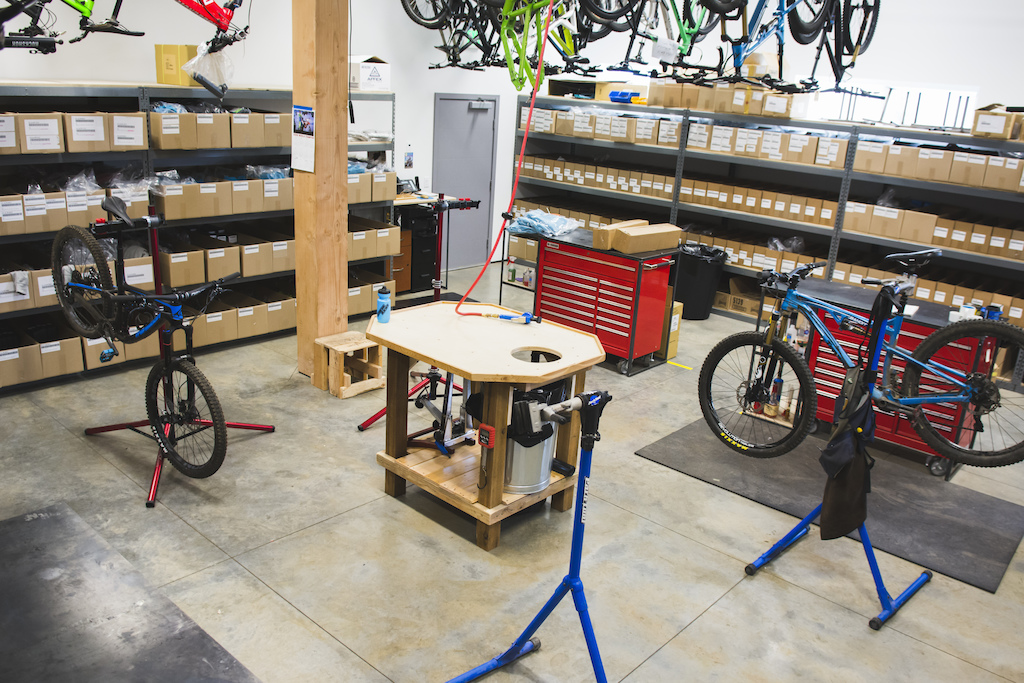
A large, well stocked shop space is used to build up new, prototype, and demo bikes, and to maintain the rides of existing customers.
 Making the move to producing carbon bikes can be tricky, especially for smaller companies. What was the biggest challenge that accompanied the introduction of carbon bikes into the lineup?
Making the move to producing carbon bikes can be tricky, especially for smaller companies. What was the biggest challenge that accompanied the introduction of carbon bikes into the lineup?Kevin: With the Carbon Covert the timing was about as bad as you could get. It took longer than it should have – that one was a painful pill to swallow. We'd been in talks with the bigger component and suspension companies and they were talking about 650B, but at the time we thought that there was a good delineation between 26” and 29”. It didn't go on our radar as soon as it should have.
Kyle: It was a learning experience. We learned how to read the market better, how to read the industry better, and to be a driver rather than a passenger in the product world. It taught us a lot about production planning and thinking about product life cycles. I think that the Carbon Covert wasn't what we wanted it to be, but I look at the positives, and I think it's made our product team sharper and how we analyze those projects and what we want to do. We were transitioning from a get 'er done style, and that just sharpened us, and made us go to the next level of tooling up to do more carbon.
Kevin: For the size of our company I think we're pretty progressive as far as carbon and how much we're coming out with in the future. We have good design and engineering resources now, and the product team is real focused. Before it was one carbon project at a time and it would take two years, and now we can do multiple projects at a time. Having the right manufacturing vendor is huge – it makes the process so much easier.
 What's Transition's top selling model this year?
What's Transition's top selling model this year?Kevin: The Patrol.
Kyle: The market's coalesced to that 160 bike – it's just the bread and butter I feel like.
Kevin: Yeah, it's the bike most consumers feel they need whether they do or not. But it is the most versatile, it's the bike you're seeing at Whistler Bike Park because someone only goes once a year so they bring their 160mm bike.
Kyle: I wish you'd asked me two years ago because I would have said the Klunker.
Kevin: It [the Klunker] was our least profitable model, but we couldn't get containers quick enough.
Kevin: It is cool to see the resurgence of 29ers, because at first everyone was saying it would die when 27.5” bikes came out. We've always been big 2-9 fans ever since the Bandit 29 came out. I'm excited to see that take off.
 Have you seen DH bike sales drop as enduro bikes have increased in popularity?
Have you seen DH bike sales drop as enduro bikes have increased in popularity?Kevin: Yeah, they have. I liken that to when I go to Whistler and see how many enduro bikes there are versus DH bikes right now. I think you can definitely see that trend changing. I don't know if it's going to be 50/50, but I still think we're at the upward trend of more enduro bikes being present in bike parks. We haven't reached that plateau yet.
Kyle: I don't necessarily see it as 'Oh, there's fewer downhill bikes at Whistler.' I see that there are more other bikes. I don't see it as a cannibalization – I think the market's growing. With these mid-travel bikes it becomes a palatable option, where they can do both things, and that's getting more people into bikes. I do think the market is building, and getting more people into thinking about riding and mountain biking the right way.
Kevin: Now we can sell one bike that can do anything, where five or six years ago you would have been compromising hard in one area.
 | Our number one thing was to become a company that was approachable. We didn't approach it thinking, 'Hey, we're going to build a far superior mountain bike compared to what everyone else is doing.' We thought, 'Let's build a rad bike, but let's build an equally rad company that people can relate to. One that's transparent, that people can come and hang out with and ride with... That was the ethos then, and it's still the same now, although our ability to create bad-ass bikes has gotten better. - Kevin Menard |
 Transition has a very low employee turnover rate - what do you attribute this to?
Transition has a very low employee turnover rate - what do you attribute this to?Kyle: Moto Mondays. I mean, Kevin and I are human, and we have the same human desires everyone has, which is kind of to screw around and do cool stuff. I don't want to die having said, “I worked really hard and made a lot of money.” We're in this for the experience. I don't view our experience as us just sitting in here and crunching numbers and selling bikes...
It's the human interaction, it's actually having the flexibility to do the things that come up that we want to do when we want to do them, regardless of what day or time it is. If we can't do that, what are we doing? I think that's why people like it here.
We're serious, we're driven – Kevin and I are very driven in terms of our work ethic, and we know what we want out of it. If you embody the same spirit that we have – work hard, play harder – if you can do that, you'll never want to leave because everyone here gets to play harder, and that's their work. Yesterday we cut out at noon to go ride motos. I don't track time against that, I don't go, “Since you did that today you need to do that tomorrow.” They're big boys and big girls around here – they get to decide what they want to do. We treat people like adults that can manage themselves rather than slaves to whatever we want.
Kevin: We have a very high work ethic, but we also have a high fun ethic. We set the bar, and these guys can see that, they know that it's okay to take off every once in a while, as long as everything gets done. Getting back to it, that's the culture. If we aren't doing those things, we aren't doing our job properly. We need to go out on company rides, we need to go out and moto and ski and do these wacky things that we do like Boss Appreciation Day, driving boats, paintball. There are other factors too – who wants to leave Bellingham? Not many people. I'm sure if this company was in Southern California we probably wouldn't retain as many people. We'd still have a rad company, but there's multiple factors involved.
Kyle: We take care of our people... Your people are your number one – I know I’m nothing without my people. Great, we started this thing on our own, but could we do it again? No. Could we keep doing it at this level without all these great people? No – I've got to have my people. They're as important as Kevin or I.
Kevin: We have a rad work environment with a flexible schedule where you can come in late, leave early, etc. Then you can go screw off with the bosses, but there's also a high expectation to be creative and get stuff done. It's kind of like the magic formula.
Kyle: We have a pretty laid back management style. We definitely don't hand hold. It's kind of like, I don't care if you don't know how to use a computer, but you better go figure it out. And you better not ask me how to figure it out. And if you can do that, awesome. We're good. The people that thrive in this environment are the people that can do that.
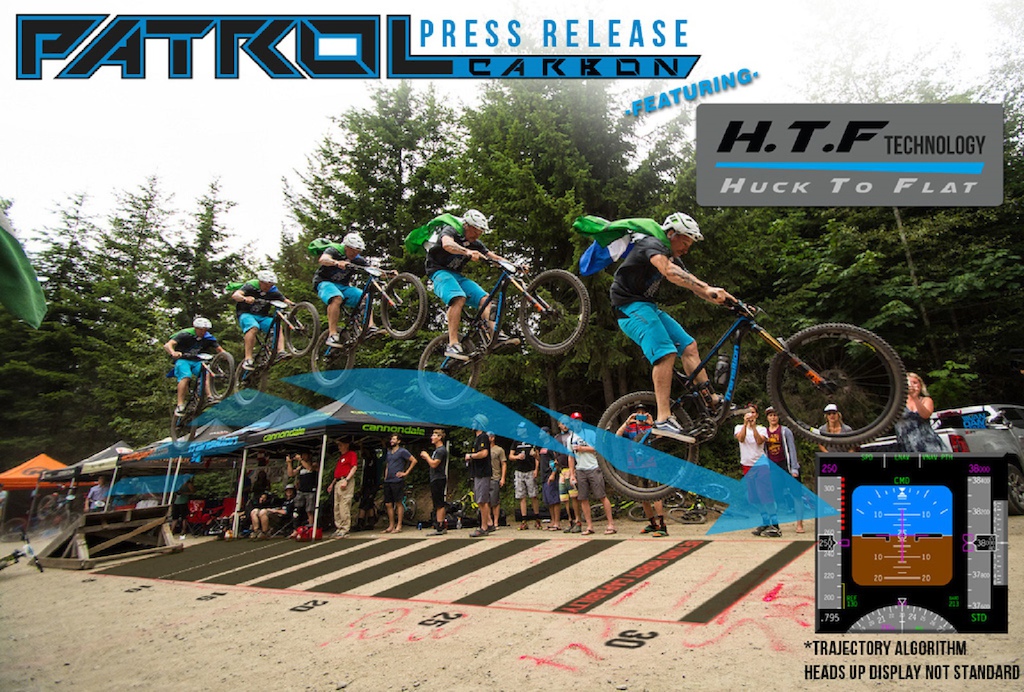
Nothing like a mega huck to flat courtesy of Lars Sternberg to poke fun at the overuse of acronyms in the bike industry.
 Do you have any specific goals for the future of Transition?
Do you have any specific goals for the future of Transition?Kyle: It's a weird question because I'm super goal oriented, and Kevin would be the first to tell you that I'm always like, 'We have to have a long-range plan,” and we always yin and yang on that. I'd say I've grown to the point where really my long range plan is to provide a rad work environment where people feel rewarded for the work they do, where they feel valued and like they're part of something that they really care about. It's kind of like we're building a rad clubhouse and I care about the club house. And yeah, there's going to be goals like, 'I want this product because I'm really into this right now,” but those are always driven by that reason – why do I want it?
The world's telling us to do e-bikes, the world's telling us to do fat bikes, the world's telling us to do plus size bikes... I've had industry influencers tell me to my face, “Man, you guys aren't on this fat bike thing? You guys are fools.” And I'm like, you clearly don't understand who we are or what we care about. If we were just here to make the almighty dollar we'd be doing things very differently. But that's not the type of goal we have.
Kevin: I want us to be a relevant brand, to be someone that everyone is looking at, checking out what Transition is doing. I think that's something you need to battle to stay on top of, from your marketing to your product development, just everything about your company. We're not trying to create trends for the sake of selling products. For me, being out of tune is calling something a new standard in order to invent a category to sell more product when it's really just widening something, or something stupid like that. That's the complete opposite of what we want to be. There's a lot of stuff in this industry that deserves to be made fun of. That's kind of our thing...
Hold Up...
Based on a lot of feedback from Transition's supporters, they wanted to address your questions that concerned bearings, pivot hardware, and alignment on their newest line-up of Giddy Up bikes....
"We wanted to take a moment to respond to comments about bearings, pivot hardware, and alignment. We have not made any changes in suppliers or business partners in the past few years, but our volume has grown tremendously. Trying to stay on top of that demand and get bikes in customer's hands, we have seen some early production QC problems with assembly on the Patrol Carbon in particular. Steps have been taken to improve the process and ensure everything is correctly prepped and torqued from the factory. Of course, if anyone has issues with our products we will stand by them 100% and ensure they are taken care of.
As some people have mentioned, we have seen a small number of frames with alignment problems around rear shock mounts. Any frames out of tolerance are completely backed by our warranty and we are ready to help you ASAP. If you feel you have a problem, please contact us at warranty@transitionbikes.com and we will be sure to make it right for you. If we don't hear from you, we can't help. The percentage of frames that have been reported to have alignment problems is extremely low. Welding does introduce uneven stresses in a frame, typically a frame is aligned before heat treat and after heat treat, it is good to go. However, some cases of frames out of alignment after heat treat are always inevitable. We try our best to catch them in QC, but occasionally something will slip through and make it out to a customer. More recently we have been seeing an increase in comments about bearing quality and we are looking at new options for bearing suppliers as a result. Quality is very important to us, and we are always looking for ways to improve our products and make sure our customers are happy." - Transition Bikes
MENTIONS: @TransitionBikeCompany
Author Info:
Must Read This Week
Sign Up for the Pinkbike Newsletter - All the Biggest, Most Interesting Stories in your Inbox
PB Newsletter Signup
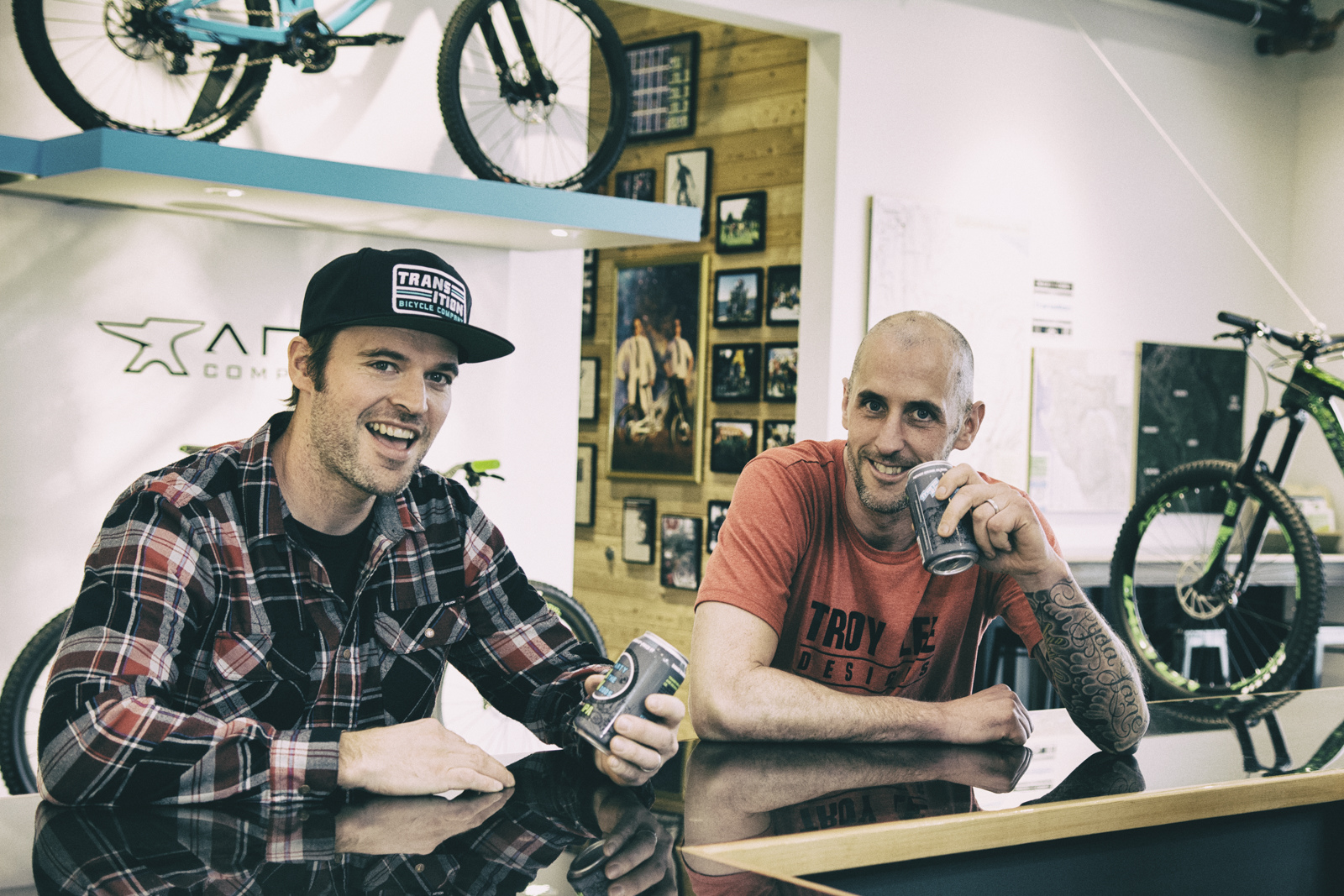

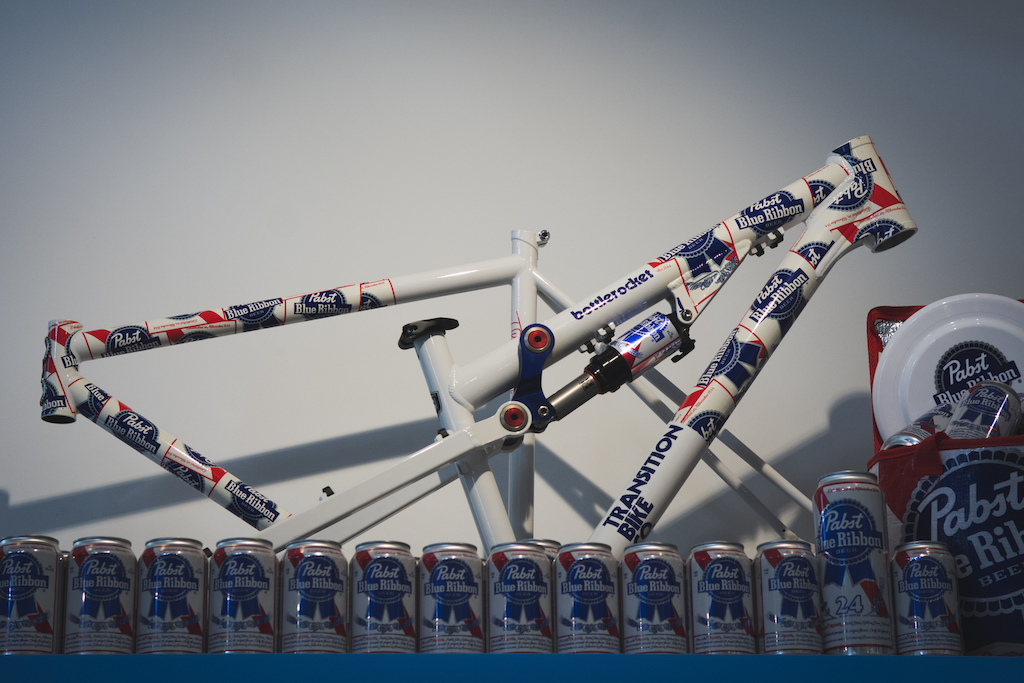

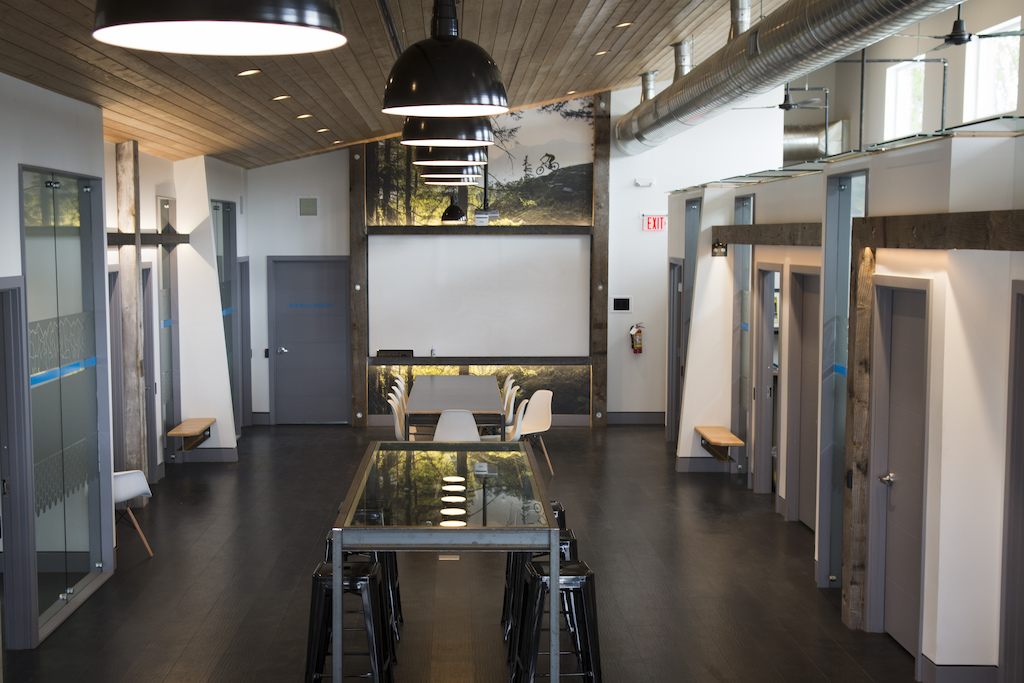

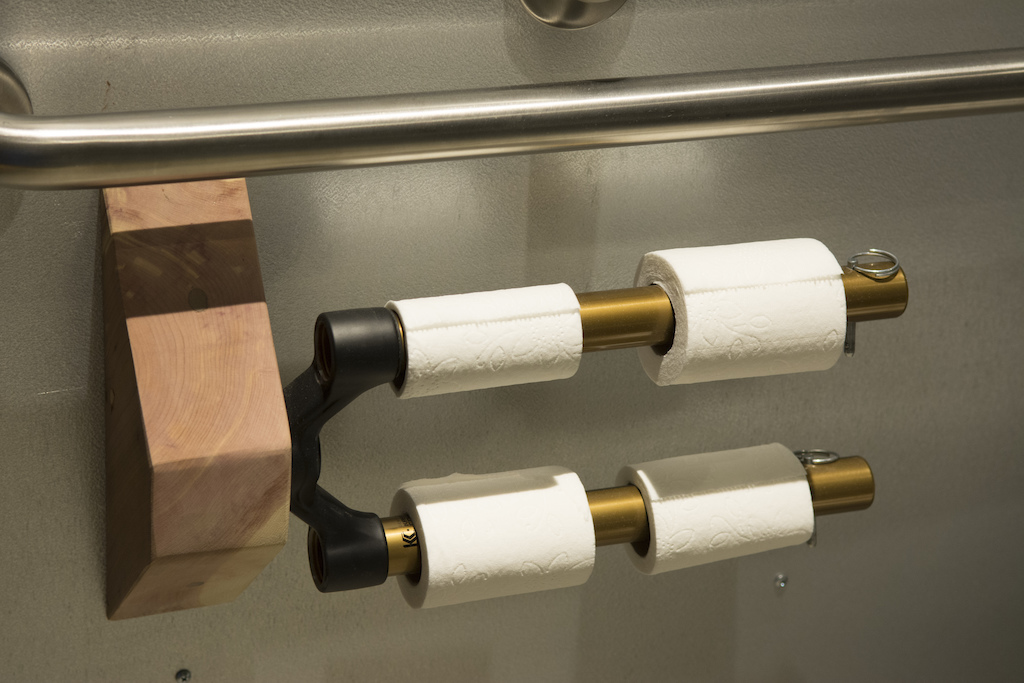

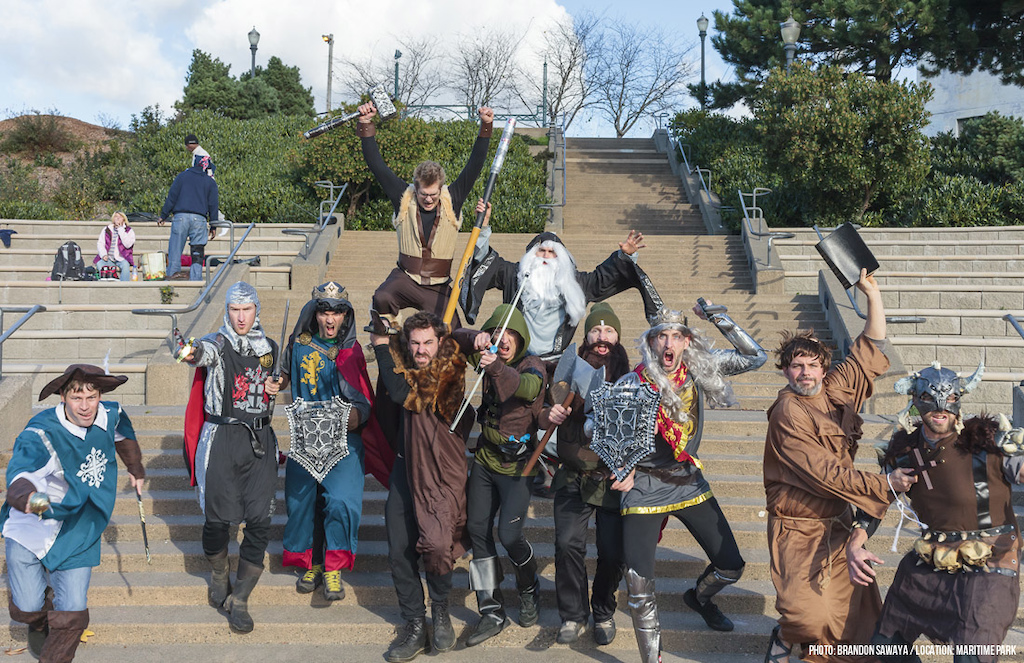

hallelujah praise be Transition !
Can I have a crack at "Industry Influencer", pretty sure a vocational guidance councilor said it was my calling way back when
I guess what I don't understand is coming down so emphatically one way or the other based on something that shouldn't affect you so much. Don't want one of these bikes? Don't buy one. If Transition doesn't want to sell them, that's OK, but it doesn't make them heroes saving the cycling world. It's just a simple philosophy.
Now as soon as the frame arrives....
Your friends to the north!
Love what you guys do , looking forward to what you have in store for the future !
But yes I also think e-bi&%* (can't even say that word) are bikes with a motor and therefore no longer a bike but a moped. So they also have to be treated judicially like a moped and are not allowed on the trails.
As for ebikes, I've honestly never seen a single one in a shop here in Colorado Springs -- never mind on a trail -- and people here are arguing like they're the scourge of humanity. Maybe they're big in Europe or Canada or elsewhere, but I've never seen them here on our local trails. Or maybe they're everywhere I ride, and I haven't noticed. If that's the case, how bad can they be?
F$%k EBikes (unless you are disabled, in which case fill yer boots)
F%*K wheel size debates
F$%k the industry
It’s all about maximum fun on two wheels however big / wide they are ride what makes you smile and love what you do.
Love my 2016 TR500 running on 26 inch wheels
p.s any vacancies at Transition???
Looks like winning to me
That's all.
your the know nothing goof so stop with the insults and enjoy your bike
I had a 450 and now have a 500, but really the 500 is 90% the same as the 450 so it's starting to show its age, especially the geometry (bigger than XL please!)
I follow Tahnee's racing too - she's going great and a really good ambassador for you.
Cheers
comments bold? I'm not crazy right it is bold? @mikekazimer
Haven't noticed any bolts coming loose and my bearings lasted a year but then again I can use an allen key properly and I don't jet wash it...
My bike:
2014 Transition Covert 29er, custom build. Pike 150mm fork, Fox Float CTD rear, Reynolds AM wheels, Hayes Prime Expert Brakes, 1x10 set up with Gx derailleur and Wolfstooth 32t up front, KS Lev 140mm dropper post, Race Face Atlas handlebar, Black Ops pedals, and Race Face Crank.
I know components make the bike but w/o a decent frame it doesn't matter what components are on the bike. So this was my first splurge on a bike, spent $1500 for it from someone that built it up from the frame, which for me then and even now is a lot of money. My family thought I was crazy, but I recognized how good a deal it was and I haven't looked back since.
My Transition has handled everything I've thrown at it, which at the beginning wasn't much, but this bike has inspired so much confidence in me that i'm getting plenty of air time now and even a few KOM's! It has spent some time in the shop, but that's components and as hard as I ride it's not so bad. I've taken some nasty spills too, but hey you have to push yourself to get better. I also entered my first race with this bike, which even though it's not an XC bike, I was still kicking ass. To me it's not so much about weight or geometry of the bike, but the rider and i've grown with this bike. My gf gets mad that I spend so much time with my "baby" lol.
Anyway, I could go on forever. Just wanted to say thanks to Transition for mak
Don't think I'll play this game, should have known better. Love your drawings, btw. This has gone over my head, think I'll change my outlook and just agree with your original comment and stick to reading and not posting.
AMEN transition
I have money now, but there is no elusive sky blue Bottlerocket hanging on the wall
I think if I ever bought that Bottlerocket...I wouldn't be happy. I think there is a certain majesty when you're young and poor and not able to afford the "unicorn". I get nostalgic for the feeling it inspired: The image of me and my sky blue bottle rocket on the cover of some magazine; the rides and competitions I fantasized about; the wonderful feeling of suddenly becoming a "pro" on the right bike. lol! Honestly, when I think about it...it had to be out of reach or else I would have been disappointed in the reality that it could not make me a pro.
I would like to own a Transition someday. If they ever roll out a bike in the same sky blue or PBR decals, I might be so inclined.
Did you maybe have a duff one? Can't think of any companies with a blemishless record.
Never ride my Scout without smiling. Great company too deal with too.
Every pivot bolt came loose first descent (I mean literally within 150 yards) on my carbon patrol. Nothing was torqued to spec, main pivot was under half what it should have been. My shock definitely has misalignment between top and bottom mounts, only a mm or two but still once the bolts are tight that couple of mm could easily cause premature wear from the side loading on the shock, I believe this is what Poah is talking about. It's weeping oil but the shop says it's assembly lubricant and should stop soon (already 10 or so rides in I reckon it should have stopped by now).
I've inspected the bearings and there is a faintest hint of grease in there but nowhere near well packed. I'm going to strip the whole thing down, grease all bearings and torque everything up to the spec from the manual (which is finally available half way through the year!) and hope that stops the terrible clattering noise the bike currently makes over any rough stuff. (XT 11 complete drivetrain so no reason why anything should be banging around)
Don't get me wrong it's a really fun bike to ride especially pointing it downhill or off jumps, but the QA/QC during manufacturing is clearly severely lacking. It's a real shame, I've had Transitions before and they are such fun focussed bikes to own, previous ones have been second hand though so I guess all the teething bearing issues if they had any were solved, but buying this Patrol new has been a really bad experience in terms of customer satisfaction when you consider the price of the thing and will definitely make me think twice about future purchases.
So are the carbon patrols manufactured and assembled in the US or just assembled? I'm not really sure your point holds much water if ANY of it is made in Taiwan.
I'm sorry but small company or not, if I'm spending £/$1,000s on a frame alone I personally don't think it's unreasonable to expect the bolts to be done up properly to their own recommended specs and bearings to be capable of lasting a season or three. Over the years I've had loads of suspension frames and only ever changed bearings on 2 of them, generally they lasted 2-3 years with ease. As in the case of some people on the thread, the bearings have only lasted 3-4 months of non-winter use. Sure you could reasonably expect to have to check pivot bolts after what a few tens of hours of riding, literally just to check they're still tight, not have to tighten them from slack AND re-torque everything.
Also haven't they been doing suspension frames for quite a while now? Surely the concepts and design philosophies of pivot alingment and configuration don't really change much, I'd hope they had it dialled by now. I certainly never had any pivot issues on my Bottlerocket or TR250 or anything coming loose.
Look I'm not having a go at Transition, I bought the Patrol frame after hearing all the rave reviews and remembering how much fun I had on my TR250 so I've got a vested interest in getting this sorted. I just think that my frame (and anecdotally quite a few others worldwide are in a similar boat judging by the thread on here) has slipped through or wasn't subjected to rigourous enough QC which unfortunately lets down their whole image as far as I'm concerned. Only time will tell whether or not the shock will be ok due to the misalignment on the frame. I'm awaiting a response from the shop I bought it from on what they want to do about it.
Greasing and tightening bolts is no rocket science- most can do this on their own.
But: You spent 1800€ for a frame and get the feeling that it is assembled carelessly - from a company that pretends to care about their customers (satisfaction) and don't wanna "make the almighty dollar". Since the issues appear so often they seem to be the result of savings and cuts anywhere in the production chain. Just my 2 cents...
@clemsi I'd bet they don't do it on purpose (to save production $), but I think they simply have an issue that passed QC.
I like that the Transition guys live their dream, and I hope that the quality issues don't hit them too hard. Yes, by all means, they need to fix it, but I also guess that by the number of warranty frames they had to hand out, they already know it and are working on it.
Free speech, and all, but I'm not sure if it is helping much if people throw dirt at them in public.
I think I just figured out why my monarch is constantly weeping oil. I thought that was just the way it was. I will have to look into alignment issues. Anyone have any links to dIY repair threads? couldn't find it.
I love the fact they are living the dream but at the expense of customer satisfaction and QC? Not sure I'm on board with that.
The frames aren't cheap which makes it worse! I'd be equally pissed if it was an alloy I'd bought, however at £1000 less I probably would have been less annoyed.
@clemsi Couldn't agree more.
Also, does Transition not use sealed bearings in their frames? How did you inspect the bearing grease? Did you physically remove the bearing seal? If you did, I suggest you just replace them now. They'll never be the same. I work a lot with bearings in general and once those seals are pulled after factory install it is usually a death sentence. Transition probably sources those bearings so they are coming pre greased...probably from NSK or NMB or something like that (mfgr label will be on the seal). Transition may have received a bad lot. Insufficient grease is a really difficult thing to catch my means of QC inspection...especially with the variety of sizes Transition is probably using. If you have to get new bearings...the Enduro ones are tits!
As for the side load on your shock...that could be a problem. I wouldn't sweat the oil weeping like your shop said. I have the EXACT same shock on my Kona. Just installed it aftermarket so it is new. It weeps oil. Give it time...it will stop. With that shock, if the side load thing is going to give you issue, it will come in the form of noticable air loss. If you constantly find yourself pumping up your shock to maintain your sag settings...that may be from the side load. On mine...I maybe have to check my shock air pressure 1 to 2 times per season.
I'll second that Transition bearings suck - get the right person on the phone at Transition and they will tell you the same thing. I had to replace three completely seized bearings on my Smuggler within 4 months of ownership. I went ahead and replaced all with Enduro bearings.
I get it that bearing replacement under warranty is a 'slippery slope' (Transition's words) but then don't put shit bearings in your frames that will be toast in months. And yes, most of the swingarm bolts loosen on a somewhat regular basis. When I called Transition to discuss the bearing issue, I was reminded a couple of times to regularly tighten the swingarm bolts.
The truth sometimes sucks. Still a fan but a little turned off by the experience.
I didn't mean grease pivot bolts (these have thread lock compound on anyway so you wouldn't grease them), I mean add grease to the sealed bearing units. It's easy to pry the rubber seal back on a sealed bearing unit without damaging the seal, especially when they're particularly cheap sealed bearings, the seal literally pops out. I'm sure you work with a lot of bearings, I do too
I'm waiting for wear marks to appear on the can before giving in on the alignment issue, I've not checked the exact air pressure actually, I did notice a couple of hefty bottom outs last ride though.
@TheFunkyMonkey:
In the UK (new) buyers are protected by legislation saying products have to be fit for purpose. If bearings die in under 4 months they weren't fit for purpose originally and the shop/distributor has to replace them.
Bearings are one thing, but misalignment is quite another. From my experience of quick response from Transition, I'm guessing they dealt with the issues fast.
@TheFunkyMonkey its pinkbike, why else would I get neg props for telling the truth
as for the bolt's, just as you are assembling the bike take them out, put locktite, and bolt it up to torque, most frames, wheeles and component's like that will get loose after the first rides
frick yes
Got my eye on a Carbon Patrol. Quality bike that are meant to be ridden.
Perfect for Pinkbike kiddos.
Cheers!
from a proud owner of a Patrol and 450!
Thanks for clearing that out for me!